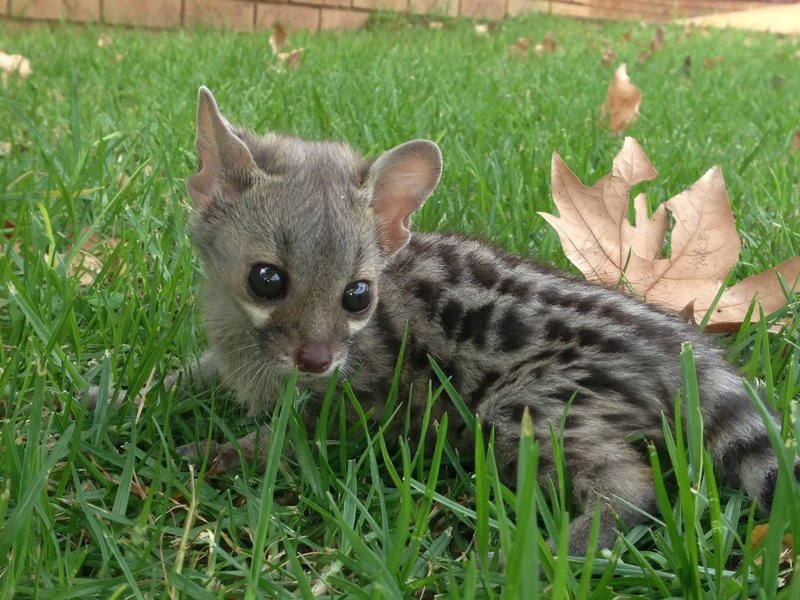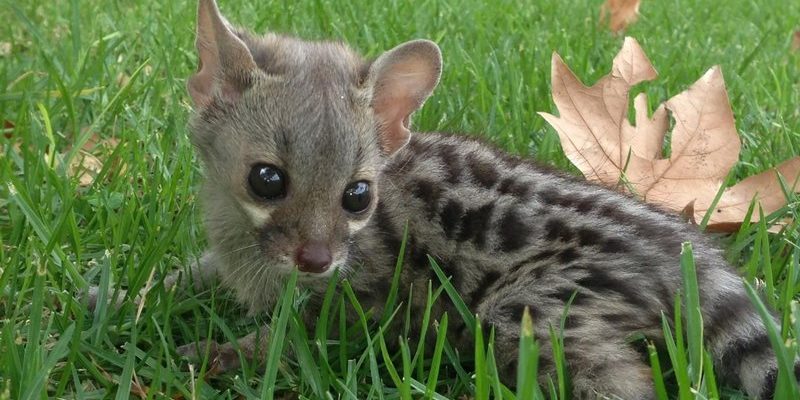
So, let’s dive into the world of genets and see where they stand in terms of conservation. Are they at risk? What’s being done to protect them? You might be surprised by the answers. It’s a journey through the complexities of wildlife conservation, and it’s vital for all of us to understand the importance of these creatures.
What is a Genet?
You might be wondering, “What exactly is a genet?” Well, genets belong to the family *Viverridae* and share a distant relationship with civets and mongooses. They are small, slender mammals, typically with elongated bodies and a long tail, often marked with stripes or spots. Their appearance is almost cat-like, which can make them a bit confusing. However, they’re more closely related to civets than they are to house cats.
Genets are primarily nocturnal hunters, which means they’re most active at night. They have excellent senses, particularly their sense of smell, helping them track down small prey like rodents and insects. Imagine sneaking out on a summer night with your best flashlight, trying to catch a glimpse of something mysterious—this is what a genet does every night in the wild!
Current Status of Genets in the Wild
Now, let’s get to the heart of the matter: are genets endangered? The truth is a bit nuanced. Some species within the genet family, like the *Genetta genetta*, also known as the common genet, are classified as “Least Concern” by the International Union for Conservation of Nature (IUCN). However, other species face significant threats and are classified as vulnerable or endangered.
Here’s the thing: genets are becoming increasingly threatened due to habitat loss, hunting, and human-wildlife conflict. As more land is cleared for agriculture and urban development, these creatures lose their homes, making it harder for them to thrive. It’s as if someone decided to take sections of a jigsaw puzzle and toss them aside. Without their habitats, genets struggle to survive.
Threats to Genets
What are the specific challenges that genets face? Let’s break it down:
- Habitat Loss: As human populations grow, so does the demand for land. Forests and savannas are cleared for farming, cities, and infrastructure. This means fewer places for genets to live and hunt.
- Hunting and Poaching: In some regions, genets are hunted for their pelts or out of fear or misunderstanding. They are often considered pests or competitors to domestic animals, leading to further persecution.
- Human-Wildlife Conflict: When genets venture into human areas looking for food, it can lead to conflicts. Farmers may retaliate against genets that threaten livestock or crops.
The combination of these threats creates a challenging situation for these charming creatures. It’s crucial for us to understand these impacts if we want to help.
Conservation Efforts for Genets
So, what’s being done to help genets? Conservation efforts are vital to ensure their survival. Here’s how organizations and researchers are stepping up:
- Protected Areas: Many countries are establishing protected areas where wild genets can roam freely. These reserves provide safe habitats and help maintain biodiversity.
- Educational Initiatives: Raising awareness about genets is key. Educating local communities about the ecological benefits of these animals can reduce hunting and promote cohabitation.
- Research Programs: Scientists are conducting studies to better understand genet populations and behaviors. This information helps inform conservation strategies and policies.
You might not realize it, but even small changes in local practices can contribute to the larger effort of saving these animals. Every bit counts!
The Role of Genets in Ecosystems
You may wonder why we should care about genets at all. Well, like any species, genets play a vital role in their ecosystems. They help control populations of smaller animals, keeping the balance of nature intact. Think of them as nature’s pest controllers.
When genets hunt rodents and insects, they help maintain a healthy environment. If their population declines, it can lead to an overabundance of these small animals, which might upset the balance of their ecosystem. It’s like a domino effect—one change can lead to many others.
How You Can Help
You might be thinking, “What can I do to help save genets?” Here are some simple steps you can take:
- Support Conservation Organizations: Donations or volunteering your time to wildlife conservation groups can have a significant impact.
- Educate Others: Share what you’ve learned about genets with your friends and family. The more people know about these animals, the better chance they have.
- Practice Responsible Eco-Tourism: If you travel to areas where genets are found, make sure to engage in sustainable tourism practices that protect wildlife and their habitats.
Even the smallest efforts can ripple out and create substantial change. It’s all about raising awareness and taking action to protect our planet’s biodiversity.
In conclusion, the future of genets hangs in a delicate balance. While some species are currently stable, others are facing serious challenges that could threaten their existence. By understanding the various threats they encounter and supporting conservation efforts, each of us can play a part in their survival.
Let’s remember that every species is a piece of the puzzle that makes up our world. The more we learn about genets and their importance, the better equipped we’ll be to protect them. Together, we can ensure that these remarkable creatures continue to thrive for generations to come.

